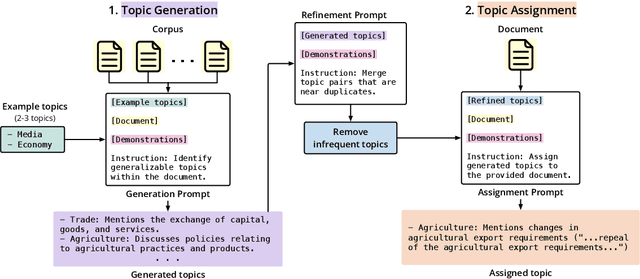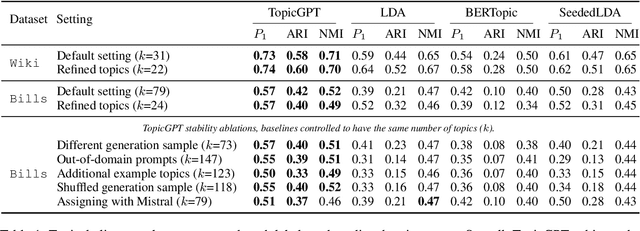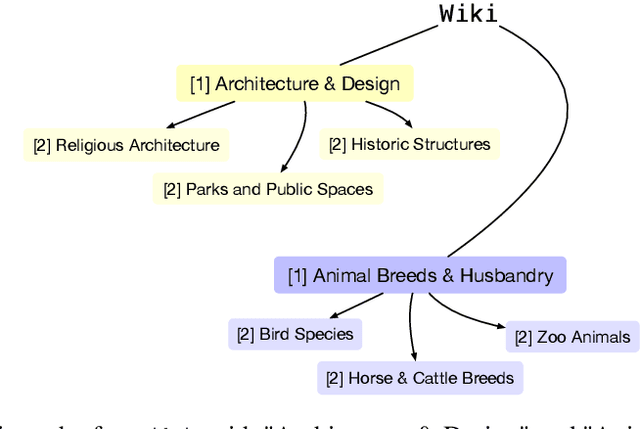TopicGPT: A Prompt-based Topic Modeling Framework
Paper and Code
Nov 02, 2023



Topic modeling is a well-established technique for exploring text corpora. Conventional topic models (e.g., LDA) represent topics as bags of words that often require "reading the tea leaves" to interpret; additionally, they offer users minimal semantic control over topics. To tackle these issues, we introduce TopicGPT, a prompt-based framework that uses large language models (LLMs) to uncover latent topics within a provided text collection. TopicGPT produces topics that align better with human categorizations compared to competing methods: for example, it achieves a harmonic mean purity of 0.74 against human-annotated Wikipedia topics compared to 0.64 for the strongest baseline. Its topics are also more interpretable, dispensing with ambiguous bags of words in favor of topics with natural language labels and associated free-form descriptions. Moreover, the framework is highly adaptable, allowing users to specify constraints and modify topics without the need for model retraining. TopicGPT can be further extended to hierarchical topical modeling, enabling users to explore topics at various levels of granularity. By streamlining access to high-quality and interpretable topics, TopicGPT represents a compelling, human-centered approach to topic modeling.
 Add to Chrome
Add to Chrome Add to Firefox
Add to Firefox Add to Edge
Add to Edge